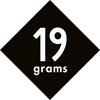The big "problem" in making bloody good coffee is finding the right water. Water is a problem because it can have a different composition in different places. As a rule, we don't recommend using tap water for making coffee, because it's not clear what minerals are in it at any given time. This means that it is very difficult to say what influence this will have on the taste of your coffee.
Our colleagues at Third Wave Water have elegantly solved this problem, which we love: they have developed various mineral compositions that you can simply add to "empty" water. The minerals are matched to espresso, filter or, for example, cold brew. We currently offer the Classic Profile for filter coffee and the Espresso Profile in our cafés and online shop.
In all four of Third Wave Water's mineral profiles, we recommend adding them to a type of "empty water", that is, water that contains nothing. There are several acceptable forms of empty water that we have found to work great with our minerals.
- Distilled water (recommended by ThirdWaveWater)
- Reverse osmosis water
- Deionised water
- Water from a Zero Water™ filter
What does this mean?
There are different methods of draining, or filtering, water:
Distilled water (recommended by ThirdWaveWater)
In Germany, it is actually used more for ironing or for the windscreen washer system in the car, but you can buy it in the ironing department of any drugstore: Distilled water is water that has been purified by a distillation process in which it is heated and evaporated and the steam is then condensed. During this process, most of the impurities and minerals in the water are removed, resulting in very high purity water. The resulting distilled water is free of most impurities, including minerals, bacteria, viruses, chlorine and other contaminants normally found in tap water. Distilled water is used in many areas including the pharmaceutical and chemical industries, laboratories and for medical applications, as well as for making coffee or tea with Third Wave Water minerals.
Reverse Osmosis Water
Reverse osmosis water is water that is purified by a process called reverse osmosis. In this process, the water is pumped through a semi-permeable membrane that only allows water to pass through, but no impurities such as salts, minerals, heavy metals or organic compounds. The resulting water is therefore very pure and contains few impurities. Reverse osmosis water is often used for drinking water treatment in households, in industry and also for the production of cosmetics and in the food industry. We have such a filter in our roastery to ensure that the coffee we make is consistent and damn good.
Deionised water
Deionised water is water that has been purified through a special technology called ion exchange. This involves passing the water through a resin layer that removes ionic impurities such as salts and minerals by replacing them with other ions. The resulting water is free of most ions and has a very low electrical conductance. Deionised water is used in many applications, including the manufacture of pharmaceutical and cosmetic products, in the chemical industry, in laboratories and in the electronics industry.
Water from a Zero Water™ filter
Water from a Zero Water™ filter is water that has been purified by a special filter designed to remove impurities and pollutants from water. The filter uses a multi-stage filtration technology that removes various types of impurities such as chlorine, lead, mercury, arsenic, uranium and others. The resulting water is therefore very pure and has a very low total dissolved solids (TDS) content. TDS refers to all inorganic and organic substances dissolved in the water, including minerals, salts and other impurities.
OTHER WATERS ARE NOT CONSTANT
Other types of water such as filtered water, spring water and tap water do not work well with Third Wave Water's minerals. This is because all of these types of water contain unknown amounts of unknown minerals that would inhibit and interfere with the precise measurements of the minerals we put into our mineral sticks.
These types of water, especially spring water and tap water, vary from place to place. Not all water sources contain the same amounts of minerals, and they are also bottled regionally. A bottle of Poland Spring water or a different variety will therefore contain different minerals than another bottle of the same brand, perhaps even from the same shelf!
In a study comparing the mineral content of tap and bottled water, large differences in mineral content were found between water sources in individual cities, not just from city to city. In Germany, the water is basically (and in a worldwide comparison) of very good drinking quality, but the hardness, for example, varies. Therefore, it may make sense for you to use distilled water to prepare coffee or to get a Brita water filter.




